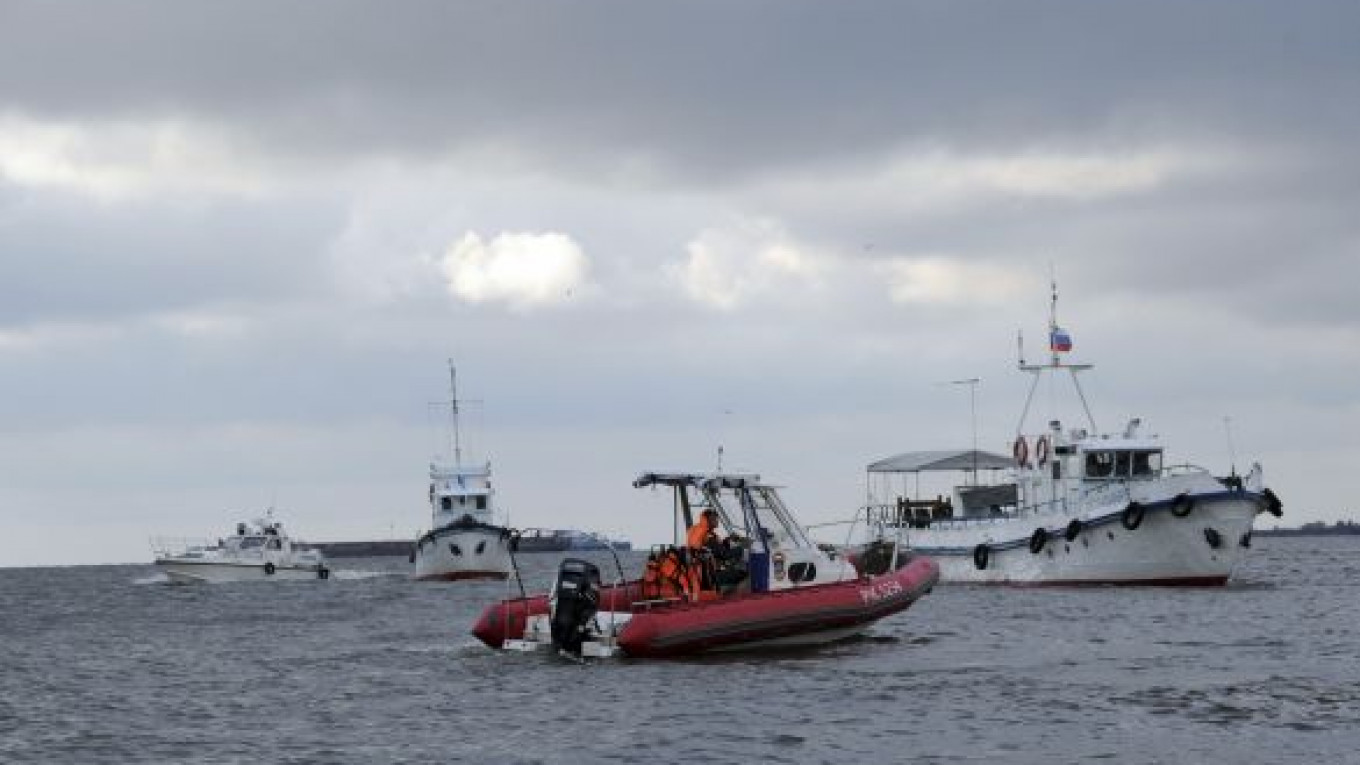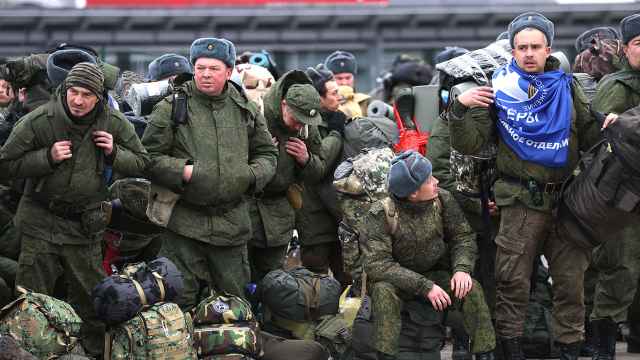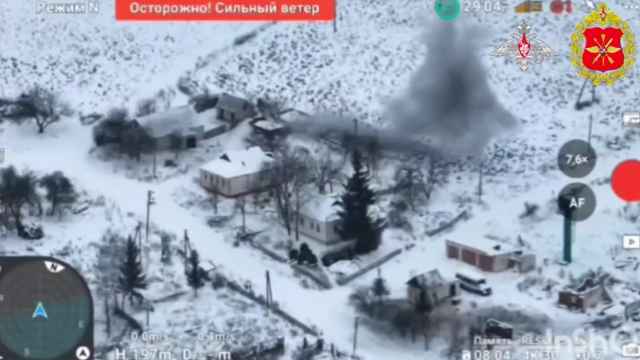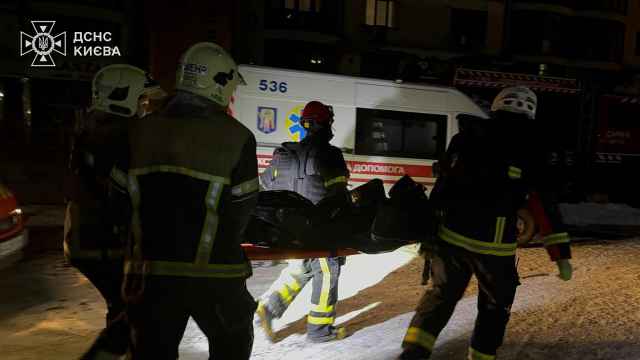At least 41 people have been confirmed dead and dozens more are missing after an aged, overloaded cruise ship sank amid wind and rain in the Volga River, news reports said Monday.
“So far, 41 bodies have been brought to the surface," said Ruslan Fatkhudinov, a spokesman for the regional branch of the Emergency Situations Ministry, Interfax reported.
Emergency Situations Minister Sergei Shoigu said 208 people were believed to have been aboard the Bulgaria when it sank Sunday afternoon in Tatarstan. That's nearly 75 percent more than the 120 the boat was licensed to carry, officials said.
The ministry said 80 survivors were rescued, all of them Russian; it was unclear whether any foreigners were aboard. River cruise boats such as the Bulgaria are highly popular among Russian holidaymakers, conducting cruises ranging from a few days to two weeks.
Igor Panishin, of the regional branch of the Emergency Situations Ministry, said survivors reported the ship was leaning to starboard as it made a turn and a wave washed over the deck, RIA-Novosti reported. It sank within about eight minutes, he said.
The ship sank about three kilometers from shore in about 20 meters of water, officials said.
Many children were aboard the boat, and survivors said about 50 children had gathered in the ship's entertainment hall shortly before it sank.
"It happened very fast. Hatches and windows were knocked out," said Vladimir Shirybyryv, a friend of both survivors and missing people who was waiting at the river port in Kazan for word. Based on a surviving friend's account, he said: "Everyone who survived was covered with fuel oil."
One survivor told Vesti-24 television that other ships refused to come to their aid.
"Two ships did not stop, although we waved our hands," said the man in his 40s, who stood on the shore amid weeping passengers, some of them wrapped in towels and blankets. He held another man, who was weeping desperately.
President Dmitry Medvedev on Monday demanded a thorough investigation and declared Tuesday a day of mourning. He also called for a full technical assessment of the condition of all Russia's passenger vessels.
The Transportation Ministry says Russia has 1,568 registered passenger vessels — more than 100 are as old or older than the 56-year-old Bulgaria.
Emergency teams and divers from neighboring regions rushed to the site of the tragedy, 750 kilometers east of Moscow.
The Volga, Europe's longest river, is up to 30 kilometers wide in places. The river is a popular tourist destination, especially in summer months.
The Bulgaria was built in 1955 in Czechoslovakia and belongs to a local tourism company. It was traveling from the town of Bulgar to the regional capital, Kazan.
A tourism expert said the lack of partitions inside the Bulgaria made it vulnerable to breaches.
"In case of an accident these ships sink within minutes," Dmitry Voropayev, head of the Samara Travel company, told RIA-Novosti.
Russia's Tourism Industry Union said the ship had not been inspected or retrofitted for years, according to Interfax.
(AP, MT)A Message from The Moscow Times:
Dear readers,
We are facing unprecedented challenges. Russia's Prosecutor General's Office has designated The Moscow Times as an "undesirable" organization, criminalizing our work and putting our staff at risk of prosecution. This follows our earlier unjust labeling as a "foreign agent."
These actions are direct attempts to silence independent journalism in Russia. The authorities claim our work "discredits the decisions of the Russian leadership." We see things differently: we strive to provide accurate, unbiased reporting on Russia.
We, the journalists of The Moscow Times, refuse to be silenced. But to continue our work, we need your help.
Your support, no matter how small, makes a world of difference. If you can, please support us monthly starting from just $2. It's quick to set up, and every contribution makes a significant impact.
By supporting The Moscow Times, you're defending open, independent journalism in the face of repression. Thank you for standing with us.
Remind me later.






